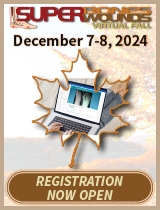|
|
|

|
Search
01/16/2015 Michael McCormick, DPM
Stenosing Tenosynovitis?
I am treating a similar very active patient with
very much the same symptoms. She develops
unremitting pain after an hour or two on her feet
and by the afternoon she describes herself as
crippled. She has a bag full of orthotic devices
of all sorts which she doesn't tolerate.
The only difference between the presentations is
that I can elicit some deep plantar medial pain
with deep palpation, but no pain or erythema along
the fascia itself.
She has seen a number of other doctors in several
specialties, one of whom suggested performance of
a gastrocnemius recession, even though her
Achilles can only be described as hyper-mobile
with at least 30 degrees ankle dorsiflexion. I
tried a Medrol dose pack which only helped for a
couple of days but did seem to resolve her
anterior lower leg pain which I can’t be sure was
related. A Tarsal Tunnel injection didn't seem to
do anything. Three weeks ago I gave her a plantar
fascia injection in the middle plantar fascia
region as one would for what I call “middle
plantar fasciitis” and she reported being pain
free for three days.
Last week, I added some felt padding to a pair of
soft generic orthotics to invert her a good 20
degrees, sort of a trial Blake device. I will
report on her outcome using those after she
returns in a couple of weeks. I have not sent her
for an MRI yet but will try stressing the long
flexors clinically and see what kind of response
occurs. Did your MRI report detail an exact
location for the tenosynovitis?
Michael McCormick, DPM, Venice, FL
Other messages in this thread:
01/15/2015 Tip Sullivan, DPM
Stenosing Tenosynovitis?
This is one of those “rule out” scenerios. The
points of interest I think are:
Raynauds— is this associated with a sero negative
or positive arthritis or collagen vascular
disease? – get a detailed blood work-up and family
history or a rheumatology consult.
A negative neurology work-up, I assume, includes
NCS and EMG. Please note the high number of false
negative studies well documented in the literature
and supported by personal experience. The fact
that you injected a “steroid” and she got several
hours of relief may be misleading. Typically, when
presented with a suspected tarsal tunnel and with
negative NCS, I block the posterior tibial nerve
with Marcaine, no steroid and observe symptoms. In
this case, there is a bilateral presentation,
which in my experience, is very rare in tarsal
tunnel.
There is hard evidence by MRI of inflammation
along the flexor tendons. I suggest looking at
these personally to confirm radiology read and to
determine where this begins and end anatomically
(i.e.-at the crossing of FHL and FDL?). Does this
respond like most other inflammatory problems in
the foot – temporary resolution with
immobilization and oral steroid/non-steroid?
I have never seen a case of stenosing
tenosynovitis in the flexor tendons in the bottom
of the foot but in peroneal tendons and posterior
tibial tendons which I see fairly often I will
take some renographin (radio-opaque dye) place a
tourniquet above the suspected stenosis inject dye
into the tendon sheath well away from the srea of
interest and watch the dye with a “C” arm as the
patient moves the tendon. In cases of true
stenosis the problem is obvious with blockage of
the dye. In the hand where this is more common
there is usually crepitus with motion and this is
common with stenosis of the larger tendons in the
foot/ankle.
The fact that she has bilateral symptoms should
work in your advantage to create a control and
test as well as being able to cross over
treatments to help illuminate the culprit. If this
does turn out to be some rare stenosing
tenosynovitis of the plantar foot, unless you can
identify the exact point of stenosis, I would
avoid surgery.
Tip Sullivan, DPM, Jackson, MS
|
| |

|
|







